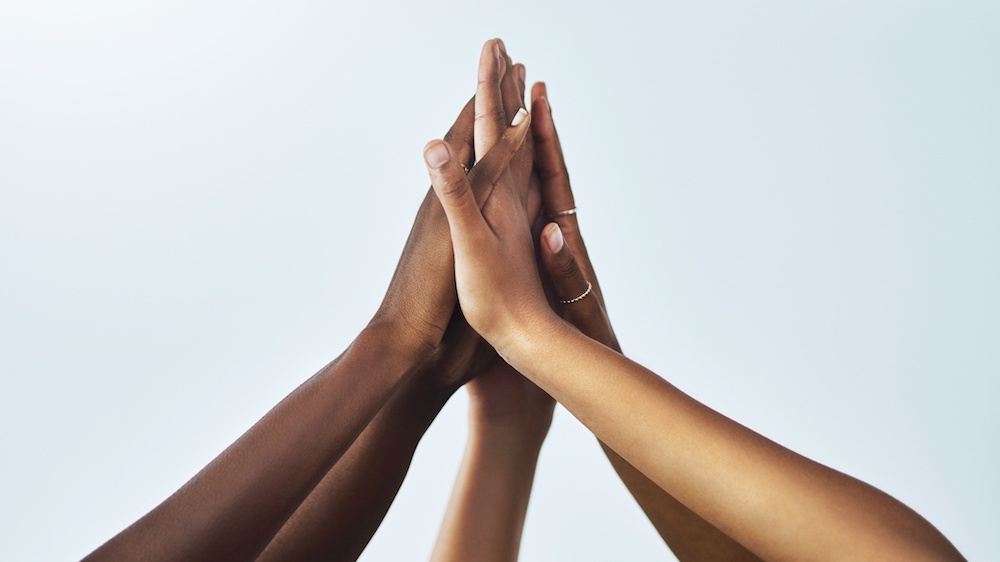If you’re interested in sharing your opinion on any cultural, political or personal topic, create an account here and check out our how-to post to learn more.
____
This has been some Women’s History Month so far, hasn’t it?
For starters, it’s pretty much been erased by COVID-19, as our country and communities fight alongside nations around the world to stop the spread of the deadly virus.
Fortunately, we’ve seen women in leadership in this country rise to the occasion; women like Nancy Pelosi, who helped U.S. leadership move the ball forward in passing a $2 trillion dollar relief package for workers and businesses hurt by the pandemic.
Earlier in the month we saw women like Nida Allam become the first Muslim American woman elected to political office in the state of North Carolina during Super Tuesday. However, we also witnessed Massachusetts senator Elizabeth Warren — once a frontrunner in the Democratic race against President Trump — drop out of the race after failing to win even her own state, which many claim, was due to sexism. (And, before her, some argue, Kamala Harris.)
And while we’ve seen sisters like Bea Dixon, founder of The Honey Pot and one of the first 40 women of color to raise $1 million in venture capital, get the shine deserving of many Black female entrepreneurs in a national ad run by Target during Black History Month, the very next month we saw scores of racists try to tear her business down, simply for saying she hopes to inspire Black girls.
Malcolm X said nearly 60 years ago, “The most disrespected person in America is the Black woman,” and certainly those feelings were conjured up recently after a 15-year-old Black girl was brutally attacked and robbed for her shoes and iPhone by a gang of Black boys in Brooklyn, New York.
Before that, there was the ugly, painful moment between Snoop Dogg and Gayle King, with Snoop calling King out her name and threatening her after an interview she did on the late Kobe Bryant. And while I did not agree with some of the questions King asked of her guest, Lisa Leslie, I also do not agree with a man disrespecting a woman in that manner for any reason. Given that disrespect is something Black women encounter far too often across society, I know that sometimes it’s got to be really difficult for sisters to continue to keep an open heart and mind when it comes to their relationship to some of the men in their lives.
In the best case scenario we are supportive and loving partners, brothers, fathers and sons, protecting and advocating for them in spaces they most need it. In the worst case scenario we are the ones they run from, which is certainly not something God intended, either for Black women or men.
Despite its title, I wrote my most recent book, The Code of the Righteous Warrior: 10 Laws of Moral Manhood for an Uncertain World with women in mind.
This, as much of what I’ve learned about being a man, I’ve learned by being a partner to my wife of 30 years.
Also, much of what I’ve learned about being a man, I’ve learned by being a father to my daughters for 29 years.
And last, but certainly not least, much of what I’ve learned about being a man, I’ve learned through my time in the ministry, reinforced by years of religious and spiritual readings, my fellowship with other men in the church, the military, martial arts and community. Also, through the many years I’ve spent counseling parishioners at Enon Tabernacle Baptist Church in Philadelphia. Blessed to work with thousands of Philadelphians inside and outside the church walls, one of the congregants I have been blessed to learn from is Time Magazine Woman of the Year and founder of the #MeToo movement, Tarana Burke.
I’ve known Tarana since 2007. Early last year we had her come to Enon and address the men of our church because it was needed. For some men, when they hear #MeToo what they really hear is “you against me.” Tarana did not start a movement to bash or fight men, as some have countered. She, through her life’s experiences, birthed the #MeToo Movement because she recognized that when a white woman cries in anguish for help the whole world stops, but when a Black women cries, nobody hears her. Tarana was raising a flag to America — not just to men — that Black women hurt, too. It’s a message that needs to resonate through our communities and our churches, as such it is certainly a message welcome at mine.
Other messages we sometimes need to be reminded of: Black women are our partners, not our competitors; our cohorts, not our doormats and not an optional part of the advancement of the Black community.
What we are talking about here is ultimately what is right.
And so what I want Black women to know this month is — amidst all that is going on — there are brothas out there doing this work. There are men who are concerned about raising public discourse on every level. Men who look to set the tone and tenor of conversations that communicate respect, particularly among our sisters.
We are doing this work because it’s our Godly duty to be there for our women and our families as men should be.
When Black men hear #MeToo, our response continually must be, “We got you!”
____
Dr. Alyn Waller is the senior pastor of Enon Tabernacle Baptist Church in Philadelphia, Pennsylvania, and the author of 'The Code of the Righteous Warrior: 10 Laws of Moral Manhood for an Uncertain World'.
